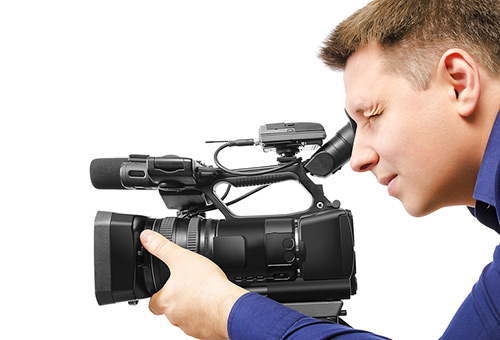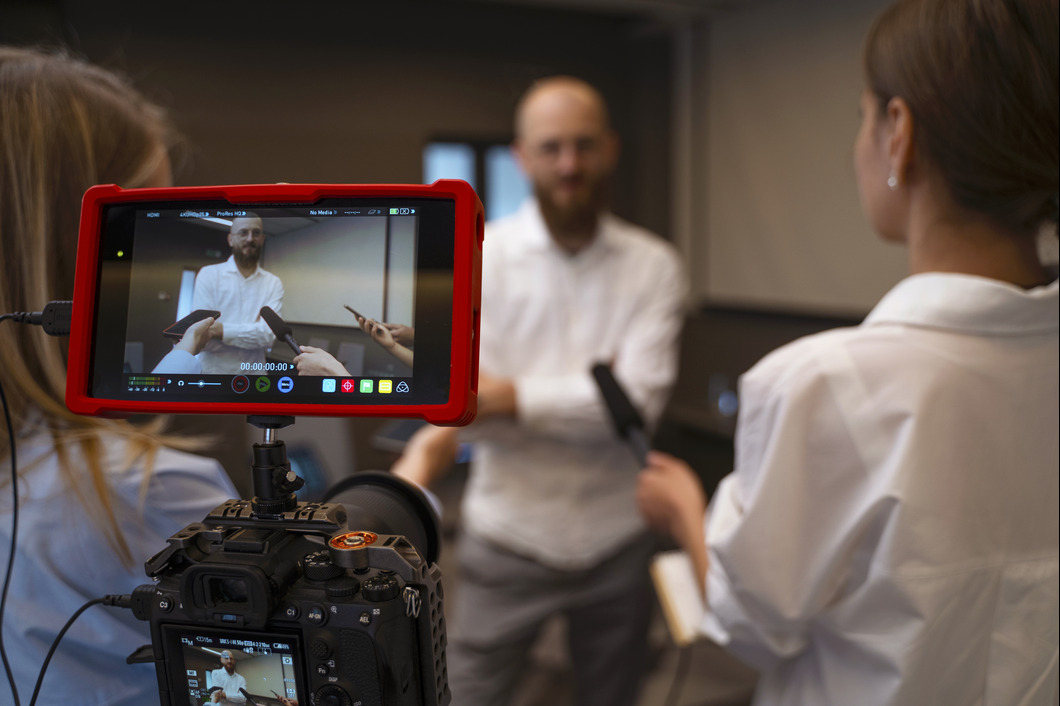The Role of Legal Videography in Protecting Legal Evidence
Top Advantages of Using Lawful Videography for Depositions and Trials
The assimilation of lawful videography right into depositions and tests provides a variety of engaging advantages that can considerably affect the effectiveness of legal proceedings. By recording witness testaments in a vibrant layout, lawful videography not just enhances the presentation of evidence but also reinforces witness reputation through the preservation of both verbal and non-verbal signs.
Boosted Evidence Presentation


In the world of legal procedures, the use of video clip recordings has transformed the way evidence is offered in court. Legal videography gives a dynamic and appealing medium for showcasing important evidence, making complicated information a lot more accessible to courts, juries, and other stakeholders. Unlike typical written transcripts, video clip recordings capture not just the talked words, but likewise the subtleties of body language, tone, and temperament, which can considerably affect the interpretation of testaments and statements.
Additionally, video evidence permits a more engaging narrative discussion. Through aesthetic storytelling, attorneys can properly highlight key elements of an instance, guiding the audience's focus to turning points. This improved presentation can promote a deeper understanding of the context and effects of the evidence being reviewed.
Additionally, the capability to existing proof in a multimedia format can streamline the test procedure, minimizing the moment needed to communicate information compared to extensive spoken explanations or reading from records. Generally, legal videography plays a pivotal function in enhancing evidence presentation, guaranteeing that the info is both impactful and understandable, inevitably helping in the quest of justice.

Improved Witness Credibility
The usage of legal videography significantly boosts the integrity of witnesses during test procedures. By providing an aesthetic representation of a witness's testament, lawful videography allows jurors and courts to perceive the witness's demeanor, self-confidence, and authenticity. This multi-dimensional discussion can significantly affect how the details is received, usually causing a more positive impression of the witness.
Additionally, the recorded video clip captures non-verbal hints, such as body language and facial expressions, which can be critical in communicating reliability or emotional deepness. A witness who shows up composed and genuine is most likely to be regarded as trustworthy than one that is merely listened to through audio. Lawful videography also gets rid of the possibility for misconception that can occur with composed records, as the aesthetic format supplies context that sustains the talked word.
In addition, the durability of video proof strengthens the witness's account, making it harder for opposing events to challenge the testament's integrity. By integrating legal videography into depositions and tests, lawyers can dramatically strengthen the the original source regarded integrity of their witnesses, eventually improving the general performance of their instance.
Accurate Deposition Records
Accurate deposition records play a crucial duty in lawful procedures, serving as important evidence that mirrors the integrity and dependability of witness testimonies. This accuracy is crucial when establishing the facts of an instance, as it permits attorneys to reference exact expressions or assertions made by witnesses, decreasing the risk of misinterpretation.
Furthermore, lawful videography improves the accuracy of deposition documents by catching the aesthetic and acoustic elements of the testament. This includes body language, intonation, and faces, which can give extra context to the spoken words. Such thorough records make it possible for attorneys to craft even more engaging arguments, as they can conveniently validate cases with direct proof.
Furthermore, exact deposition records can simplify the trial procedure, minimizing disagreements over what was stated and enabling a much more effective discussion of evidence. Inevitably, the combination of composed transcripts and video clip recordings fosters a more clear understanding of witness testimonies, significantly affecting the instance's outcome.
Psychological Effect On Jurors
Jurors usually discover themselves affected by the emotional weight of the testaments they witness during a test. The visual and auditory components of legal videography improve this emotional vibration, permitting jurors to perceive the subtleties of witness expressions, tone, and body language. These variables play a vital duty in shaping jurors' assumptions of trustworthiness and integrity.
When jurors see a witness recounting a stressful experience, the emotional gravity caught on video clip commonly generates empathy and involvement. This can be specifically impactful in situations where the human aspect is main, such as personal injury or family law matters. The ability to get in touch with a witness's emotions promotes a deeper check out here understanding of the situation, making jurors most likely to associate to the story existing.
In addition, video clip testaments can share a feeling of credibility that might be lost in written transcripts or audio recordings. Jurors are not just absorbing information; they are also experiencing the story, which can considerably influence their deliberations. By doing this, legal videography functions as a powerful device to stimulate feelings, inevitably leading jurors towards an extra enlightened and caring judgment.
Economical Litigation Tool
Lawful videography not just improves the emotional impact of witness testimonies but additionally offers as an affordable litigation device. By giving an aesthetic record of depositions and testimonies, lawful videography can substantially decrease the costs related to typical trial prep work and discussion.
First, it decreases the requirement for extensive witness traveling and lodgings. Rather than bringing several witnesses to court, their recorded depositions can be played throughout the discover this info here trial. legal videography. This not just saves on traveling costs but additionally permits a more structured presentation, as attorneys can focus on one of the most significant statements
Additionally, lawful videography can restrict the amount of time invested in test. By efficiently providing witness accounts and proof, attorneys can speed up procedures, which translates to reduce lawyer costs and minimized court room costs. The clarity and authenticity of video recordings commonly lead to quicker court choices, possibly shortening the trial duration.
In an age where budget plans are progressively looked at, making use of legal videography can deliver substantial cost savings while improving the general high quality of a situation discussion. Its twin advantages of cost-effectiveness and boosted interaction make it an important tool in contemporary lawsuits.
Conclusion
In summary, lawful videography substantially improves the effectiveness of depositions and tests. Its capability to present proof thoroughly, improve witness credibility, and give precise records adds to a more clear legal procedure.